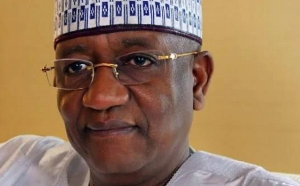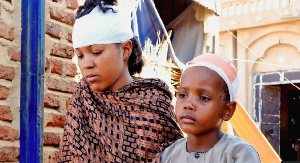The New Patriotic Party, from its birth in 1992, set the model of how the organisation and running of political party affairs should be in Ghana.
Indeed, the general feeling is that the delegates' conference of the National Democratic Congress of December 2006, which led to the re-nomination of John Evans Atta Mills as presidential candidate and leader was a leaf straight from the NPP manual.
The conduct of that NDC congress was very good by any standard. Ghanaians will therefore expect the same if not better from the NPP this December. Now that the NPP General Secretary has sent out a circular to all Regional and Constituency officers of the party to get on with the process of selecting the 2,300 delegates from the constituencies, the focus of all the aspirants is rightly shifting on the selection process.
Everybody is calling for a clean, transparent and acceptable selection process. Even the cleanest of elections cannot be insulated from aggrieved persons. But, the least that should be expected is for a process that will be manifestly accepted by a great majority of party members and the woman on the Kaneshie tro-tro as fair.
As the General Secretary has stated in his circular, party officers must ensure that they go about the "selection" process in reference to the constitution and "administrative practices." By administrative practices, he means the accepted convention, which has derived from the constitutional provision, and via which delegates have been legitimately selected since 1992.
This shouldn't mean a situation where a chairman can handpick delegates. What it mean is the consensus, consultation, nomination, selection and election practices that happen at the constituency level in accordance with the constitutional provision which calls for an extraordinary conference at the constituency level.
Yesterday, the planned crunch meeting at the Castle between the President and the aspirants had to be postponed because of the 'unavailability’ of several of the heavyweights. We hope the meeting comes on. And, we hope the party is able to assert itself in such important encounters.
As far as we are concerned, the most important issue facing the NPP is not that the President is behind one candidate. Indeed, as far as we are concerned there is no doubt about that - the President has a parti pris interest in this matter. We can appreciate concerns over this but we believe there is a tendency to over-flog and exaggerate the culpa or influence of the President in who succeeds him.
Every candidate is paying money, some small, some big. Every candidate is using the art of persuasion. And, every candidate will continue doing so until December 22nd. Some candidates have been doing essentially the same thing they are accusing the President or his preferred candidate of for a very long time.
We know how prospective aspirants in 2005 were spending resources to ‘sponsor’ candidates for constituency, regional and national elections. We know of how some aspirants have since then courted and ‘nurtured’ some party executives with ‘favours’ to win them to their side.
There are two areas which in our view the players ought to be rather focusing on: the integrity of the process of selecting delegates and the integrity of the National Congress day itself.
Some players are even pushing for the delegates to be limited to the 10 known constituency officers of the party to avoid any untoward manipulation of the process. This they say may only require a directive from the National Council to allow for such an obvious constitutional tinkering.
Though the National Council had decided that the names of the delegates will not be officially known to the candidates until two weeks before congress, we know that once they have been selected, the attention of the various campaigns will shift onto the selected few. Cash will be spent, gifts may pass hands, messages, personalities and all will be employed to influence them.
Through consultations we have had with some party elders, the wise counsel is that the party must ensure that everything is done to prevent monies changing hands on the day of the congress.
The sanctity of that day should be preserved. The stakes are far too high for the leadership of the party to treat this just like the other congresses in the past.
They should show a lot more mettle and authority in ensuring the right thing is done and for the best man to emerge. As for paying and influencing, whoever is clean must cast the first and last stone.
Politics of Thursday, 11 October 2007
Source: Statesman












